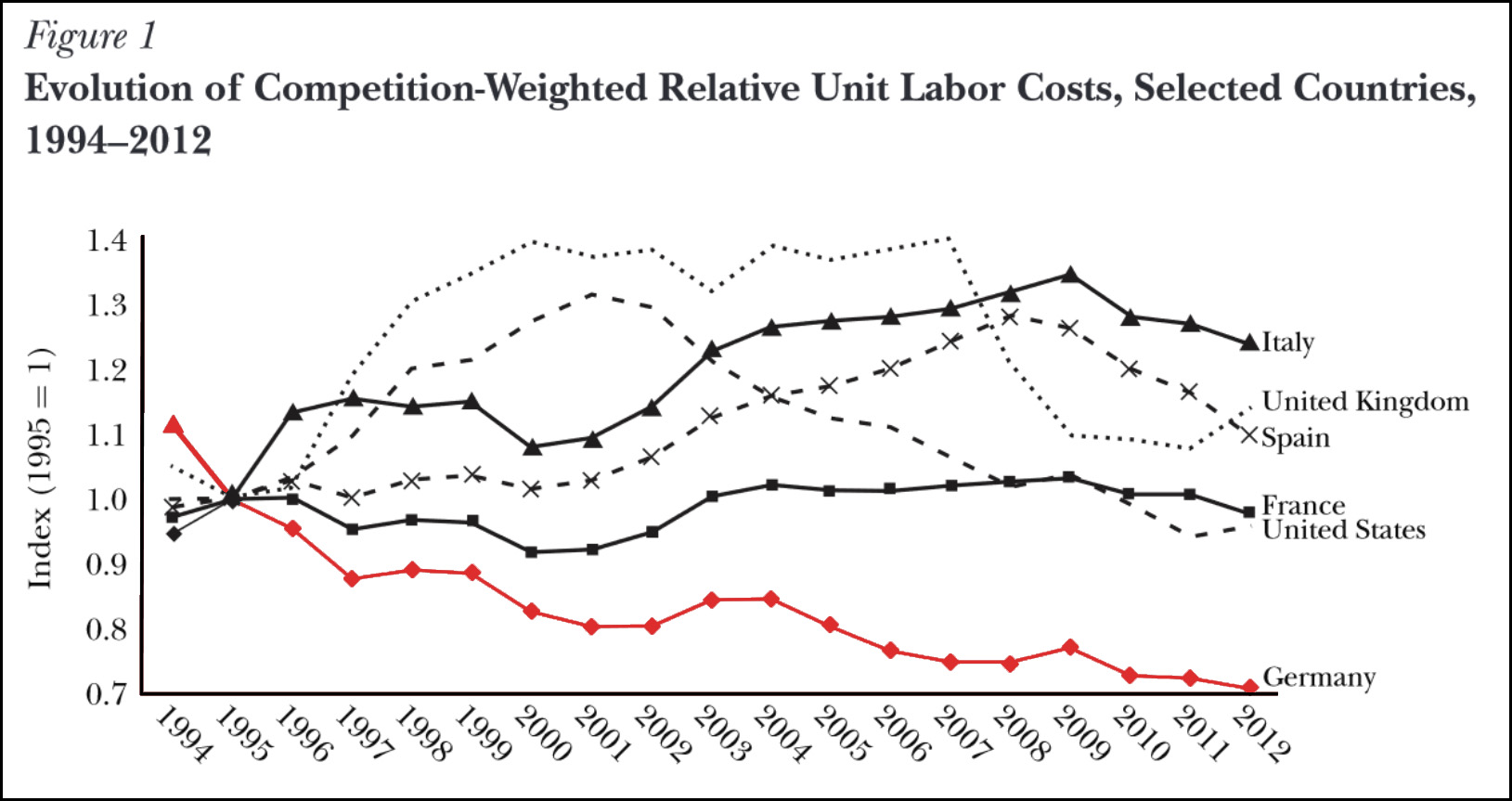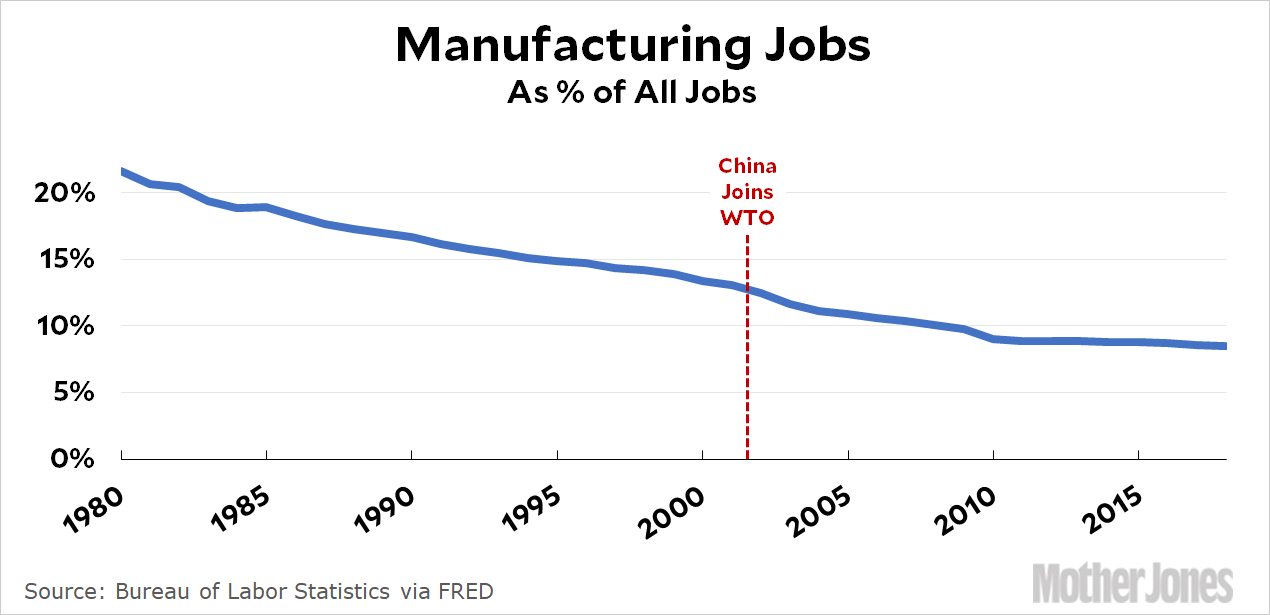Elizabeth Warren unveiled her plan for “economic patriotism” yesterday. Here’s a taste:
Some people blame “globalization” for flat wages and American jobs shipped overseas. But globalization isn’t some mysterious force whose effects are inevitable and beyond our control. No — America chose to pursue a trade policy that prioritized the interests of capital over the interests of American workers. Germany, for example, chose a different path and participated in international trade while at the same time robustly — and successfully — supporting its domestic industries and its workers.
This isn’t really true at all. Germany succeeded by exercising decades of “wage restraint,” an implicit deal in which German workers accepted lower wages as the price of merging with East Germany and competing on the global stage. A recent paper shows what that looks like:

Obviously you can make a case that this was a worthwhile tradeoff. But make no mistake: it’s a tradeoff that hurt working-class wages so that business owners could sell more stuff to other countries—precisely the kind of thing Warren is criticizing. The authors of the paper explain how it happened: “The share of German workers covered by any kind of union agreement has sharply declined, and the number of firm-level deviations from industry-wide union agreements has sharply increased since the mid 1990s.”
This may seem like a piddly criticism, but it’s not the only thing to dislike in Warren’s plan. For one thing, it never even mentions labor unions as a way of helping American workers. She correctly notes that flat wages didn’t “just happen”—they’re the result of deliberate policies that favored capital—but doesn’t take the next step and explain that the destruction of unions was one of those very deliberate policies.
Then there’s the whole idea of an industrial policy that favors manufacturing in the first place. Do we really want one? A hundred years ago, trade policy designed to focus less on exports of raw materials and focus more on exports of manufactured goods was the way to go from being a poor country to a rich country. Today it’s not. It’s the way to go from being a poor country to a middle-income country, which is why China has adopted it. The road to being a rich country runs through the knowledge industries. This is why the United States gave up on manufacturing long ago:

China may have taken manufacturing jobs from us after they joined the WTO, but as you can see, the effect was pretty small. They merely added a bit of a tailwind to a gale that was already blowing. What’s more, the damage is over and done. Even if it was a mistake to cede the manufacturing stage to China, it’s a mistake two decades in the past that can’t be remedied now.
So even if we want an industrial policy at all—a dubious proposition—we really don’t want an industrial policy focused on manufactured goods.
This is an example of why I’m becoming more dubious of Elizabeth Warren. It’s one thing to hang your hat on having a plan for everything, but if you’re going to do that then your plans should be well thought out. Increasingly, I’m not sure they are.


















